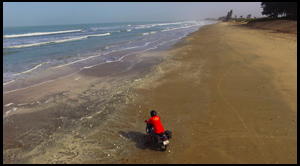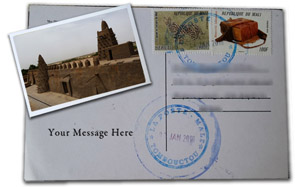Do I want to wade into these waters? Not really. I have relatively flimsy toubab-in-Mali credentials to be talking about pan-Africanist critiques of the neocolonial order. But maybe someone can help me see something that I’m missing.
By now you may have heard the news. The Malian government has sent the United Nations peacekeeping mission (MINUSMA) packing. Whatever flaws the mission had, it’s impossible not to acknowledge that Mali is going to face enormous challenges going forward. More challenges than they already had.
If you have not heard the news, here are some good articles with analysis: Ensuring MINUSMA’s Smooth Departure from Mali, As UN Peacekeepers Prepare to Leave Mali, It Now Hangs in the Kremlin’s Balance, MINUSMA, a post mortem
There is a very loud group of Malians in Bamako that is thrilled with the news. Some of them believe Mali is up to the task of these additional challenges. Others believe MINUSMA is the source of many of Mali’s problems. According to them, the mission’s departure in and of itself will lead to drastic improvements.
Anyone serious knows that the latter sentiment is a pipe dream. The UN mission was not on its way to creating any durable solutions for Mali, but it prevented things from getting worse in the areas where it served. A mere bulwark may be a disappointment considering the scope of the mission and the size of its budget, but when you consider some of the alternatives you can understand the northern populations’ current apprehension.
But the Malian government has clearly thought this through. They’ve been given assurances from their Russian partners. They believe they are on the right path. I would like to believe that too, but if that path involves the draconian, scorched earth tactics of Wagner, I am doubtful that it will lead to lasting peace in the north and center of the country. Another possible post-Barkhane, post-MINUSMA path – conceding the regions to whichever armed group is best able to assert itself – is equally discouraging.
Whether or not Mali has made the right call, there is no argument to be had with their ability to make these decisions. Mali’s recent assertion of sovereignty has galvanized Bamako, and it has stirred up pan-Africanist sentiment in other Francophone countries in the region. While the most wicked aspects of French involvement in West Africa may be in the past, there is no disputing that France continues to exercise a heavy hand in the affairs of Francophone Africa.
Fair play, Mali. France can do one.
But there’s something about the current movement in Bamako that bothers me, and it has nothing to do with the possibility that Russia may play a role in its orchestration.
side note: you will not find in this post a discussion about where Russian manipulation ends and Malian agency begins. At the end of the day, any analysis that ignores Mali’s very real grievances with the West misses the point.
Following Mali’s ejection of MINUSMA, Kemi Seba, a Beninois pan-Africanist activist, came to Bamako to celebrate the news. He gave a speech in Bamako in which he said, “the center of the earth’s gravity today is in Mali.”
🔴"Le centre de gravité du monde d'aujourd'hui se trouve au #Mali" (Kemi Seba) pic.twitter.com/G0EjY28Hb8
— Malivox.net 🇲🇱 (@malivox) June 24, 2023
That clip was aired on Malian state TV.
There is a lot of excitement in Bamako born of Mali’s defiance of the West, but defiance in and of itself is not going to move Mali forward. Are these celebrations following Abdoulaye Diop’s speech rejecting MINUSMA not a bit premature? What is the endgame here?
Some Bamakois are under the impression that once MINUSMA is gone, the clouds will part and new opportunities will start pouring in. What those new opportunities are is unclear, but many Bamakois seem to think that Russia, Turkey and China will be taking the reigns on some supercharged development projects. Ok. Maybe? Not?
Regardless of whether or not that is true, there is a staggering number of tough decisions to make around g-o-v-e-r-n-a-n-c-e. While I’m sure it was difficult to reject France and the West, the real challenges lie ahead, and there are no passive solutions. It’s not as simple as picking the right partners.
There are those that compare Mali’s current president with the likes of Thomas Sankara. While I think it’s problematic to deify figures like Sankara – there are no leaders past or present with impeccable records – his herculean efforts to forge a new path for Burkina Faso can’t be overlooked.
Sankara defied France, but he also challenged his own population. The 5% reduction in infant mortality during his presidency and the 2 million people vaccinated in the first two years of it were not the result of anti-imperalist speeches or the right strategic partners.
Maybe my doubts are misplaced. Perhaps the public discourse will enter a new phase once MINUSMA is gone. But I worry that many Malians have been sold a story in which the positive outcomes are just around the corner.
And I have to wonder, will the likes of Kemi Seba still be making speeches in Mali once all the meddling external actors have been jettisoned? Will Mr. Seba come to visit when the task is reconciliation in Dogon Country and not merely a rejection of the West?




0 Comments